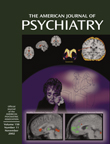Pregnancy is a landmark event in a woman’s life. Few other life events will have such a far-reaching effect. Being pregnant generates emotional, social, and physical changes that affect a woman in many ways. In psychiatric lore, it is often presumed that pregnancy has a protective effect on the course of psychiatric illness. In reality, pregnancy may exacerbate psychiatric disorders and complicate treatment. Management of Psychiatric Disorders in Pregnancy offers a comprehensive reference for the clinician treating a pregnant patient. It also offers information for counseling psychiatric patients contemplating pregnancy.
The editors discovered the need for this volume when they were working in a maternal-fetal medicine clinic. Out of their experiences, they have structured a comprehensive and organized approach to the topic. The narrative is augmented with bulleted highlights, so key information is easily located.
Psychotherapeutic and pharmacological treatments of psychiatric disorders during pregnancy are compared as possible treatment options throughout the book. A risk-benefit viewpoint is applied when assessing treatment options. The first chapter presents a review of the multiple changes that occur during pregnancy along with an overview of assessment issues. The second chapter is a review of obstetrics for nonobstetricians. Included are discussions of emotional changes of normal pregnancy and information to distinguish the symptoms of pregnancy from psychiatric symptoms. For example, fatigue and changes in mood, appetite, and sleep are common in normal pregnancy. These symptoms differ from those experienced with depression, in that in pregnancy the low mood is not sustained, and there is not a loss of pleasure. Fatigue responds to rest and, along with appetite changes, may improve as the pregnancy progresses. Normal pregnancy symptoms may have to be distinguished from those of an anxiety disorder because heart rate increase, sweating, nausea, and some hot and cold flashes may be noted in both. Although a pregnant woman may be anxious about her health and that of her child, the anxious thoughts are not generalized, as they are in an anxiety disorder.
The third chapter provides an overview of assessment and counseling for the pregnant psychiatric patient. The fourth chapter addresses the challenging issue of somatic treatment approaches for depressed and psychotic patients during pregnancy. Guidelines for the use of interpersonal psychotherapy of depression as an adjunctive or alternative antepartum treatment modality are then explored in chapter 5.
The next several chapters examine the diagnosis, course of illness, and treatment of psychiatric conditions during pregnancy and lactation, including bipolar disorder, schizophrenia, panic disorder, obsessive-compulsive disorder, and eating disorders. These chapters are well referenced, reviewing the available studies and case reports regarding the risk and likely course of these disorders during reproductive events. Guidelines for the management of fertility, sexuality, and pregnancy in a woman with schizophrenia are addressed in detail. A comprehensive approach to assessment of parenting competency and suggestions for education are included. Education is essential in this population because appropriate interventions are often required for a woman with a history of a psychosis to succeed as a parent.
The last two chapters explore the consequences of alcohol and substance abuse during pregnancy. Methods of treatment for alcohol and drug abuse during pregnancy are discussed, with the goal of improving the growth of the fetus and child.
Psychiatrists and obstetricians will find this a helpful, fact-filled text on the reproductive years. It is a useful reference regarding issues that may arise in the treatment of pregnant patients. Because it is diagnostically oriented, it can be easily used as a reference for issues related to psychiatric treatment of patients as they progress through the decades of their childbearing years.

